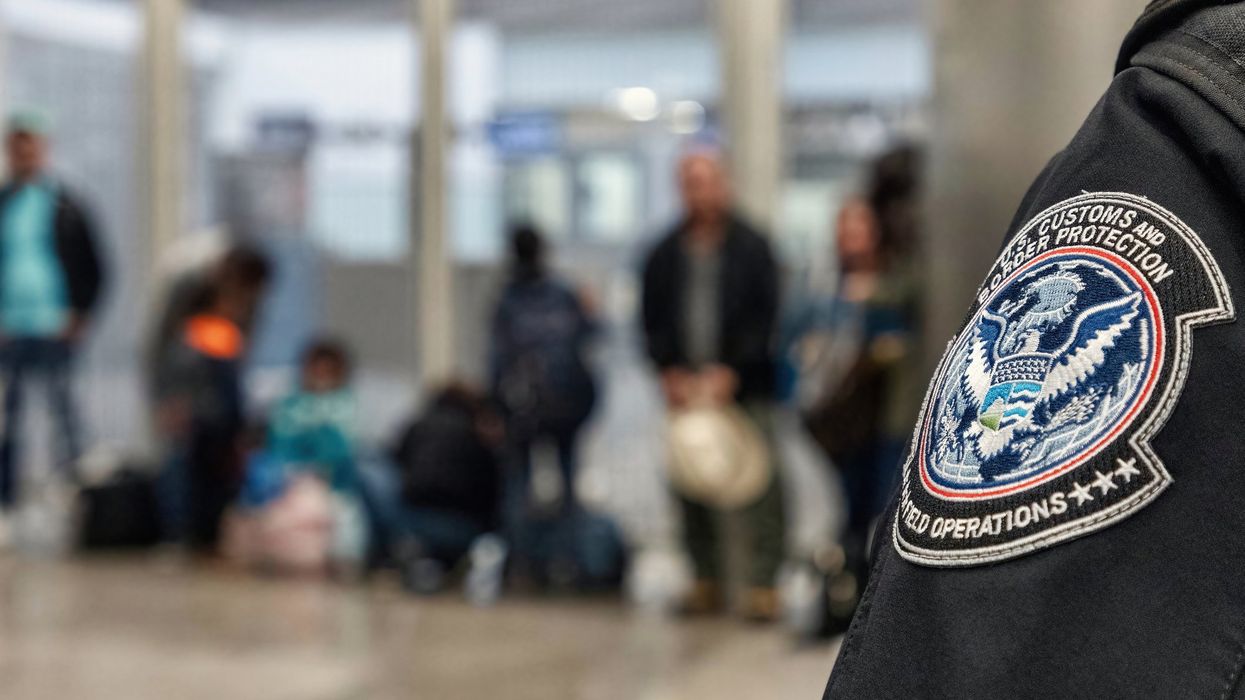The president is granting refugee status to white South Africans. Meanwhile, he is issuing travel bans, unsure about his duty to uphold due process, fighting birthright citizenship, and backing massive human rights breaches against people of color, including deporting citizens and people authorized to be here.
The administration’s escalating immigration enforcement—marked by “fast-track” deportations or disappearances without due process—signal a dangerous leveling-up of aggressive anti-immigration policies and authoritarian tactics. In the face of the immigration chaos that we are now in, we could—and should—turn our efforts toward making immigration policies less racist, more efficient, and more humane because America’s promise is built on freedom and democracy, not terror. As social scientists, we know that in America, thinking people can and should “just get documented” ignores the very real and large barriers embedded in our systems.
Immigration policies are built on colonialism and white supremacy. The hypocrisy is stark: a nation founded by colonizers who pillaged, kidnapped, and displaced indigenous populations and trafficked enslaved people is aggressively, yet selectively, anti-immigrant. Racism is embedded in U.S. foreign policy, facilitating political and economic exploitation that destabilizes lower-income nations and drives migration. Today’s enforcement practices, which punitively target people of color while facilitating white people’s entry, continue these legacies.
Country of origin has always mattered; immigrant preference categories favor highly skilled applicants, which often benefits people from wealthier and whiter countries. People born outside of North America have shorter wait times for naturalization compared to those born in Mexico. For example, even adult children of U.S. citizens from Mexico can wait 19 to 24 years for visas. Waiting decades when faced with urgent issues of day-to-day survival can be unrealistic.
In the United States, the vast majority of the undocumented population are people of color. This intersection creates a particularly hazardous status. Working without authorization is dangerous. Employers take advantage of people without papers. Access to basic needs and healthcare is tenuous. Exposure to disasters—from climate emergencies to workplace hazards—is heightened.
The structural racism of our immigration system harms undocumented persons and citizens alike. Black and brown citizens are disproportionately targeted by Immigration and Customs Enforcement (ICE). In industries where Latinx populations are overrepresented, conditions are often unsafe and inhumane. Consider the policies aimed to curtail water breaks, the dangerous working conditions of infrastructure failures, heat exposure, and lack of air-conditioned facilities, and who occupies the riskiest jobs of our concentrated animal feeding operations (CAFOs). Young citizens in mixed-legal status families face undue stress.
How can we do better? We must stop separating families, revoking visas, and deporting legal residents. We need to expand and accelerate access for all asylum seekers. We need to support local organizations that serve immigrant communities, especially those targeted by ICE. There are an estimated 11 million undocumented people in the U.S. and we need to allow them a timely pathway to citizenship.
And, we can recognize that while our systems are faulty, our language doesn’t have to be. People are not aliens. People are not illegal. These othering and dehumanizing labels enable public complacency when human rights are violated.
Finally, we need to work as a global community to address social, environmental, and political mechanisms, which push and pull international migration. A world where food, water, shelter, and political safety are universally experienced would reduce forced displacement. Migration patterns would adapt.
To be sure, policy that expedites legal immigration can seem counterintuitive for a superpower, however, America does not need an oppositional us vs. them. America’s merit rests on the values it aspires towards: liberty and justice for all. It's time we hold our leaders accountable to align their policies with these values. A nation that violates human rights, disregards due process, and favors white immigrants—and the citizens who allow these inequities—is not free; it is dangerous.
Immigration policy has always been a tool of racial and economic control. When we allow these assaults, we endorse the history and perpetuation of violence, domination, white supremacy, and the harm that an intentionally, exclusionary, and deferral-based system causes. While we debate who deserves to live where, white supremacy and fascism get a free ride.
Megan Thiele Strong is a Sociology professor at San José State University and a Public Voices Fellow at the The OpEd Project and a member of the Scholars Strategy Network.
Faustina M. DuCros is a Sociology associate professor and scholar of race, migration, and inequality at San José State University and a Public Voices Fellow at the The OpEd Project.
Susana L. Gallardo is a Chicana feminist teacher, scholar, and mom. Officially an assistant professor of Women, Gender, and Sexuality Studies at San José State University.



















Marco Rubio is the only adult left in the room